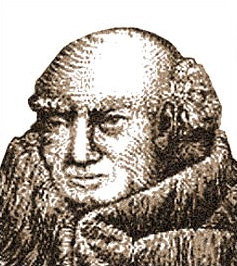|
Eriugena
John Scotus Eriugena, also known as Johannes Scotus Erigena, John the Scot, or John the Irish-born ( – c. 877) was an Irish people, Irish Neoplatonism, Neoplatonist Philosophy, philosopher, Theology, theologian and poet of the Early Middle Ages. Bertrand Russell dubbed him "the most astonishing person of the 9th century, ninth century". The Stanford Encyclopedia of Philosophy states he "is the most significant Irish intellectual of the early monastic period. He is generally recognized to be both the outstanding philosopher (in terms of originality) of the Carolingian Empire, Carolingian era and of the whole period of Latin philosophy stretching from Boethius to St. Anselm, Anselm". He wrote a number of works, but is best known today for having written ''De Divisione Naturae'' ("The Division of Nature"), or ''Periphyseon'', which has been called the "final achievement" of Ancient Greek philosophy, ancient philosophy, a work which "synthesizes the philosophical accomplis ... [...More Info...] [...Related Items...] OR: [Wikipedia] [Google] [Baidu] |
De Divisione Naturae
''De Divisione Naturae'' ("The Division of Nature") is the title given by Thomas Gale to his edition (1681) of the work originally titled by 9th-century theologian Johannes Scotus Eriugena ''Periphyseon''.''John Scotus Erigena'', ''The Age of Belief'', Anne Freemantle, ed., Mentor Books, 1954, pages 78-87. Composition The work was probably carried out beginning in the early 860s and completed around 866–67. This is based on a dedication in the book identifying as ''frater'' (brother) Wulfad, who was made a bishop in 866, making it unlikely that Eriugena would have used so casual a reference after that elevation. The work was not widely circulated in the author's lifetime. Eriugena was assisted by one, possibly two other persons in writing the book, based on the presence of margin notes indicating the penmanship of two separate persons. One of these is believed to have been Eriugena himself, while the script indicates that the second writer was a fellow Irishman. Four species o ... [...More Info...] [...Related Items...] OR: [Wikipedia] [Google] [Baidu] |
